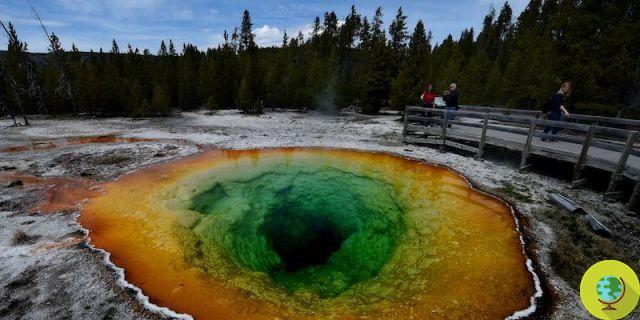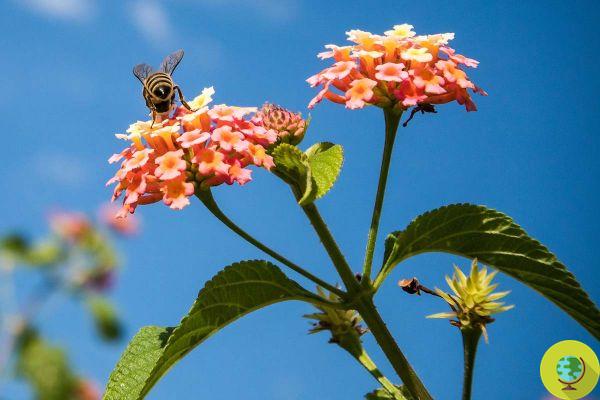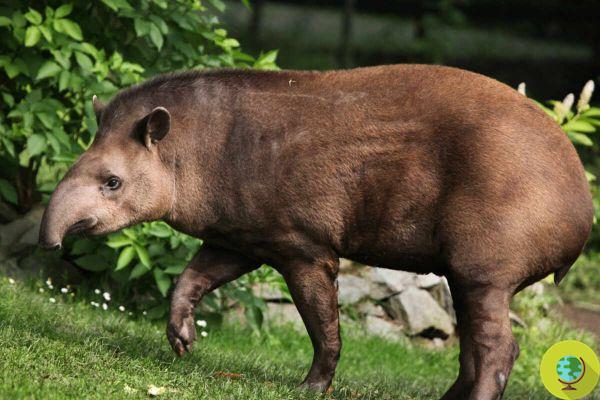Bees are dying out and many species are no longer even reported or registered. The shock study that should alarm everyone
He is about to end up run over, his mother saves himBees are dying out, but perhaps even more worrying is the scarcity of data on many species, which are no longer even reported or registered. A shocking study by the Consejo Nacional de Investigaciones Científicas y Técnicas (CONICET), the Argentine CNR, shows how the decline of bees has been dizzying since the 90s. Unfortunately without signs of abating.
We are used to thinking of bees only as honey-producing insects, living in the infamous beehives where one of Mother Nature's most impressive organizations exists. But in reality there are more than 20.000 species of wild bees, all pollinators and therefore essential for the reproduction of hundreds of thousands of plant species, as well as fundamental for the productivity of about 85% of crops (Read also: Not only hives, solitary bees are also extremely sociable (but we are losing them)).
Yet man seems to have no interest in them and therefore in his own survival. These extraordinary insects, in fact, are threatened by various causes, many of which are anthropogenic.
Index
The multiple causes of the decline of bees
- Replacing natural areas or heterogeneous landscapes with intensively cultivated agricultural areas with massive use of agrochemicals which deeply affect the survival chances of wild species;
- Intentional and unintentional introduction of invasive alien species, through international trade, which advances to the detriment of native flora and fauna, with negative consequences also in those areas that are intended to be preserved;
- Global climate change which, by altering the seasonality, affects the harmony that the populations of natural insects have established in the course of evolution with plants.
Lack of global monitoring
In all this there is, in fact, no global monitoring and many species of bees are no longer registered (or perhaps never were). We do not know, therefore, where they are, but one fact is certain: their global number is down since the 90s.
"Despite theabsence of systematic global monitoring of the bee situation, we discovered one alternative data source to answer the question we were interested in answering - explains Marcelo Aizen, co-author of the study - We found that the aggregate public data collected and stored in the Global Biodiversity Information Facility (GBIF), global and publicly accessible database on biodiversity from museum and university collections or citizen science programs, could be read as a result of sampling observations of bees from around the world for many years. "
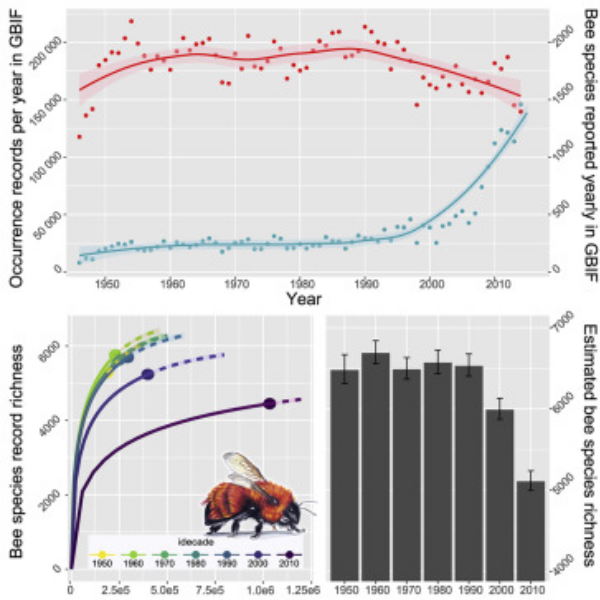
@One Earth
To avoid the problems generated by insufficient data, especially in certain years, and by the disparity in the number of observations recorded for different periods, the researchers grouped the records into seven broad time intervals (1946-1955; 1956.1965; 1966-1975; 1976 -1960) 1985; 1986-1995, 1996-2005 and 2006-2015) and used statistical tools to obtain large averages.
The decline of bees is a planetary phenomenon
"We found that although the number of annual bee registrations has increased since the mid-90th century, the average number of species has been decreasing since the XNUMXs, as would be expected if the populations of this class of insects were declining," comments Eduardo Zattara, first author of the research.
The distribution of the records is not homogeneous for the different regions of the world (50% of the data comes from observations made only in the United States) and in the places where there is more data, therefore, the declining trend of bee species is seen more clearly. But there are no places in the world where the curve is flat, i.e. positive, so the trend appears to be a global phenomenon.
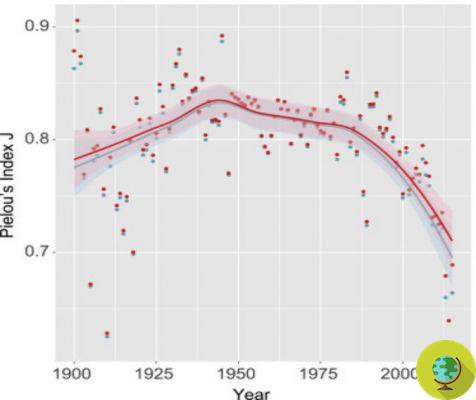
@One Earth
Biodiversity works like a mattress (which we are destroying)
Very worrying also for an aspect that is not always highlighted: not all species of bees can pollinate any plant. Thus the decline of some species may not be compensated for by others.
“Although most bees can pollinate almost any crop or plant, this is not always the case - explains Zattara - There are plants that can only be pollinated by some species of bees. In this sense, biodiversity works like a mattress, because even if you don't know which insect is the one that is helping you to increase the productivity of a crop, it still helps you. With the decline of biodiversity, the range of options is also reduced ”.
A study certainly not definitive, due to lack of data and their inhomogeneity, but sadly in line with other alarms that scientists have been launching for decades (Read also: Bees are now officially at risk of extinction (VIDEO)).
Spesso in the void.
The work was published in One Earth.
Sources of reference: CONICET / One Earth
Read also:
- Vandana Shiva: poisons in agriculture lead to the extinction of bees and humanity
- We have lost 10 million hives in just 5 years and it's our fault
- Bees towards extinction: over 1000 species at risk in North America








